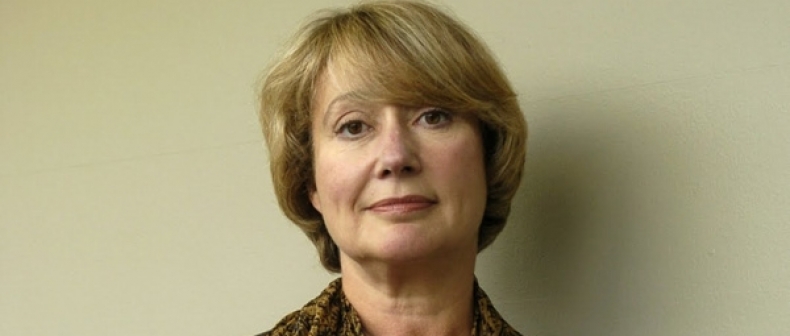
image: nsb.com
If you haven’t been on Twitter lately, you may not have heard. Margaret Wente, Globe and Mail columnist and one of Canada’s most controversial voices, has been accused of plagiarism by the blog Media Culpa. And the evidence is pretty damning.
Most notably, Media Culpa compared Wente’s article “Enviro-romanticism is hurting Africa” with an earlier article by the Ottawa Citizen‘s Dan Gardner and the words of Professor Robert Paarlberg, author of Starved for Science.
Media Culpa writes, “Wente… relies heavily on Paarlberg right from her opening paragraph, doesn’t mention the professor until at least halfway through her article – and then as a kind of afterthought – supporting what she seems to present as her own ideas and research. When she finally gets around to mentioning him, she reproduces sentences that appeared in Gardner’s article, but without the quotation marks he had placed around Paarlberg’s words – thereby presenting some of that material as her own.”
You can view the comparisons for yourself here.
And the crazy thing is, Media Culpa has been patiently documenting Wente’s alleged plagiarism and other journalistic sins for some time now… like, since May of 2011. It’s just taken this long for one of their posts to go ‘viral.’
Holy f**ck this is going to be big tomorrow, I thought when I saw the outrage slowly start to build on my Twitter feed late Wednesday night.
But a whole news cycle later… not so much. Actually, not at all.
As of right now (4:48 p.m. on Thursday, September 20), a Google News search for “Margaret Wente” produces ZERO results that relate to the plagiarism accusations. Zero. It’s just not the Globe and Mail (who has so far refused to comment on the whole debacle) sticking its head in the sand, it’s everyone.
More or less every media outlet on the planet, including our own trusty national newspapers, picked up their pitchforks and preached morality from the rooftops when Fareed Zakaria faced similar accusations earlier this summer. For God’s sake, even the NPR intern who was caught plagiarizing got more media coverage than this. Meanwhile, Wente is about as close a household name as you can get in Canadian journalism… and nothing.
“I’d like to know why @globeandmail isn’t responding to Wente accusations. But I’d REALLY like to know why no other media are covering it,” tweeted Stuart Henderson.
Well, I’ll tell you why: Everyone is scared shitless.
It’s no big secret that the journalism business isn’t what it once was; ‘business’ has consumed ‘journalism’ whole like it’s another Kardashian sex tape. The typical ‘editorial’ thought process now goes something like this: Survival is based on ad revenue > ad revenue is based on impressions > impressions come from content > MORE CONTENT NOW!
“Content,” mind you. Not compelling features nor credible reporting, but this new and ubiquitous term for what we create: “Content.” You know, the quick stuff that can be consumed, shared, and, more often than not these days, masturbated to before the reader realizes that what they’re looking at is, in fact, complete crap.
Journalism used to be about reactions; if an article made people think, motivated them to take action, started a movement, forced a politician to resign (Imagine!), it was good. Now, it’s just about numbers.
Numbers. Numbers that come from quick, timely content– it’s about being the first to pontificate about an issue, the first to publish those photos, and the hopeless pursuit of beating Twitter to the scoop on just about anything. This has all inevitably led to a lot of embarrassingly bad journalism and, probably, a lot more plagiarism and other ethically-questionable-meets-sloppy conduct than we dare guess.
And the really scary part? I bet most editors responsible for publishing this sort of content don’t even realize it. Hell, I could be one of the editors responsible for publishing this sort of content. (I’d like to think I’m not, that I’m too careful, but would it utterly shock me? Honestly?? No.)
Editors, the so-called ‘watchmen’ of journalism, are being paid less and less to do more and more. Newsroom staffing is at a 34-year low in the U.S., and I’m sure the numbers aren’t much different (or are worse) here. Canadian media are scrambling to fight for an ever-smaller number of jobs from the handful of national media conglomerates we have, and those corporations are fighting for advertising budgets that pale in comparison to their counterparts in the States.
The days of copyeditors and fact checkers at every publication are long gone; an article that could once go through multiple revisions has to be published RIGHTNOW, lest the Internet’s short attention span move onto the next big story. Stories that used to be filed under various sections with separate editors are now often siphoned into one big umbrella category with one editor. In such a system, editing basic grammar becomes priority number one; content comes second; and tossing lines through Google search to make sure work is original? Must be nice to have that sort of time.
I bet many an overworked journalist is panicking right now over the thought that, perhaps, in a rush to meet the deadlines that come sooner and sooner, he or she has forgotten an attribution here or there. For too many people these days, being a journalist means a perpetual Please God, don’t let me get laid off next freefall to the bottom of what was once their journalistic integrity.
So, tell me, who in their right mind is going to publicly question Wente and the Globe and Mail when, for all they know, their publication could be guilty of just the same sort of negligence?
Journalists are losing control of their own medium; losing control to large publishing corporations that care more about increasing profits each quarter than providing a public service. If an extra 100,000 people flock to Wente’s next column just to see if it’s plagiarized, something tells me the Globe won’t view it as a bad thing. Hits are king. It’s why Fareed Zakaria continues to work for major publications, and why Wente will continue to as well.
The time has come for media owners to make some tough calls: Will they be accountable to the public interest and journalistic standards, or cash in with royal boobs? Based on the lack of response to the Wente accusations, I fear that judgment day may have already come and gone, and, ultimately, the public has lost.
UPDATE: The Globe and Mail’s public editor issued a statement early Friday afternoon, which can be read here.
____
Sabrina Maddeaux is Toronto Standard’s managing editor. Follow her on Twitter at@sabrinamaddeaux.
For more, follow us on Twitter @TorontoStandard and subscribe to our newsletter.














